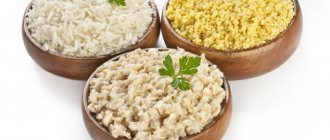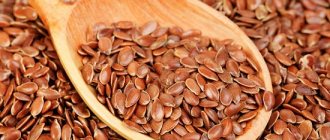Chemical composition
The fruit pulp consists of 90% water, the remaining 10% is:
- organic acids;
- alimentary fiber;
- ash;
- vitamin A;
- beta carotene;
- B vitamins: thiamine, riboflavin, choline, pyridoxine, pantothenic and folic acids;
- vitamin C (ascorbic acid);
- vitamin E;
- vitamin K;
- vitamin PP;
- macroelements: magnesium, calcium, potassium, silicon, chlorine, sulfur, phosphorus, sodium;
- trace elements: iron, boron, aluminum, vanadium, lithium, cobalt, iodine, molybdenum, manganese, copper, strontium, nickel, rubidium, selenium, zinc, zirconium, chromium; starch;
- mono- and disaccharides: glucose, fructose, sucrose;
- saturated fatty acids; omega-3 and omega-6 fatty acids.
KBZHU The energy value of a serving of melon (100 g) is 35 kcal.
The composition contains proteins - 0.6 g, carbohydrates - 7.4 g, fats - 0.3 g.
How is it useful?
Melon itself is a fairly healthy product, the properties of which are multifaceted and can support the body with many essential vitamins and microelements.
The fruit contains vitamins C, B, PP and A. The fruit also contains a large amount of pectin, organic acids and fiber. Additionally, it contains useful elements such as:
- zinc;
- sodium;
- iodine;
- potassium;
- iron;
- phosphorus.
So, melon is useful for humans with many diseases, including:
- nervous disorders;
- cardiovascular diseases;
- kidney and urinary tract diseases;
- atherosclerosis.
The condition of hair, nails, and skin improves thanks to the silicon contained in the fruit. Metabolism improves thanks to fiber, and melon also helps remove toxic compounds and heavy salts from the human body.
This product is very useful for many diseases. It is recommended to use:
- for cardiovascular diseases;
- nervous disorders;
- atherosclerosis;
- diseases of the urinary tract.
Silicon contained in this fruit has a positive effect on the condition of the skin, hair and nail plates. Fiber helps rid the intestines of harmful substances and enhances peristalsis. Substances contained in melon fibers help remove heavy salts and toxic compounds from the body.
Melon is not among the prohibited foods for gastrointestinal diseases. However, experts advise using this berry with caution. A doctor's permission to eat it depends on the form of gastritis and the severity of the disease.
For any type of gastritis, it is very important not to burden the stomach, forcing it to process food that is difficult to digest. The mucous membrane, weakened by inflammation, will not be able to digest food well. The secretion glands will begin to secrete large amounts of hydrochloric acid to speed up this process.
Melon is one of the hard-to-digest foods. Due to this factor, the stomach spends a lot of time and energy on its processing. As a result, fermentation and gas formation begin inside the digestive organ.
Based on the above, we can conclude that a fruit such as melon can be consumed for gastritis only in the superficial stage, which is characterized by a mild course of the disease or during a period of remission. For acute gastritis, this berry should be excluded from the menu.
This fruit should not be eaten if you have erosive and ulcerative diseases of the stomach and intestines. If chronic gastritis worsens, it is also better to stop eating melon.
Melon seeds, which are also beneficial for humans, should absolutely not be eaten if you have stomach diseases. They have sharp edges that will cause damage to the mucous membrane. This will cause deterioration of the digestive organ.
Why can't you eat if you have pancreatitis?
Pancreatitis is an acute or chronic inflammation of the pancreas. During the period of remission, you can actually eat a little melon, but during an exacerbation it is strictly prohibited. The reasons are quite clear:
- Increased production of hydrochloric acid and pancreatic secretion begins. This process manifests itself most clearly when a person has eaten an unripe melon. The enzymes contained in pancreatic juice aggravate destructive processes.
- Due to the abundance of fiber and simple sugars, fermentative dyspepsia begins in the intestines. She “makes herself known” with foamy stools, severe bloating and pain in the intestines, and flatulence.
- Melon contains a lot of simple carbohydrates, which becomes a serious burden for the endocrine cells of the pancreas. Her functional condition is significantly deteriorating.
If you violate all restrictions and regularly eat melon, exceeding the permissible dosage, unpleasant symptoms may appear: heartburn and nausea, flatulence, even vomiting.
General restrictions and rules
It is acceptable to eat a few pieces of melon if gastritis is accompanied by high acidity.
When it comes to a disease with low gastric secretion, you will have to exclude fruits from the diet. They will worsen the already disrupted digestion process.
As a dessert, melons are completely excluded on an empty stomach. At least 2 hours must pass after eating before you can enjoy the juicy fruit.
If the doctor allows the use of melon specifically in your case, the portion should be small - no more than 100 g. Do not wash it down with anything.
If you have a diagnosed stomach or duodenal ulcer, it is highly not recommended to eat melons. It not only impairs digestion, but also greatly irritates the mucous membrane, which is already damaged. As a result, this can provoke an exacerbation of the disease.
Recipes with melon seeds
Melon seeds, as well as the fruit, have healing properties. Traditional medicine offers many different ways to use the seeds as a natural medicine. Miracle seeds are prescribed for the treatment of prostatitis; to do this, you need to grind them almost to a powder state and take 1 teaspoon 3 times a day: in the morning on an empty stomach, in the afternoon after meals, in the evening before dinner. Since the effect of seed substances in large quantities has a negative effect on the spleen, it is recommended to consume them with honey.
Traditional healers are sure that melon seeds cleanse the intestines. Their beneficial properties help in the treatment of the liver, kidneys and genitourinary system. The seeds can eliminate cough, have an expectorant effect, eliminate chest pain, and help get rid of dry mouth.
Melon milk can be prepared from the seeds; it is used for irritation of the urinary tract and chronic cough.
Milk recipe: melon seeds should be dried, crushed and, gradually adding boiled water (slightly warm), grind until a liquid similar to milk appears. The ratio of seeds and water should be 1:8. Strained and sweetened milk should be taken 0.25 cups 5-6 times a day 30 minutes before meals.
Infusion of melon seeds: pour 1 tablespoon of seed powder with 1 cup of boiling water and leave at room temperature until completely cooled. It is recommended to take the product 1 glass three times a day before meals. This infusion lowers blood sugar levels.
The seeds have a good effect on the body during cholecystitis.
Decoction of seeds: pour 1 teaspoon of powdered seeds into 1 glass of boiling milk, cook for 2-3 minutes, drink 1 glass 3 times a day. The course of treatment is 1 week.
How to choose?
During the melon ripening season, various varieties of this pumpkin appear on the shelves of markets and shops. Choosing the best one is not an easy task, because you need to evaluate the taste of the purchased product based on its external properties.
Armed with certain knowledge, you will certainly be able to purchase a tasty and healthy product.
Regardless of the type of melon, you need to pay attention to the following signs of a good fruit:
- The skin should be free of damage, dents and stains of various colors. Carefully examine the skin of varieties with a mesh surface (for example, “Kolkhoznitsa”). Due to the peculiarities of the pattern, cracks can be easily missed - a sign of overripeness of the fruit.
- The degree of ripeness of the melon can be judged by the skin and its density. When lightly pressed, marks will be left on it, which will quickly level out. If the melon is overripe, the marks will remain and darken after a while; if the melon is unripe, there will be no marks.
- The stalk should not be overdried.
- Ripe melon exudes a pleasant sweetish aroma. An unripe fruit may smell damp, while an overripe fruit may smell rotten.
In addition, when purchasing, it is necessary to evaluate not only the degree of ripeness of the berries, but also to find out whether the melon has been treated with chemicals to improve its preservation and speed up the ripening process.
When choosing a melon, pay attention not only to the density and evenness of the skin, but also whether it leaves greasy marks on your fingers. A shiny, glossy skin may indicate that the fruit has been treated with a special wax, which ensures a longer shelf life.
The presence of spots of an uncharacteristic color on the skin, for example, pink on yellow, may indicate the use of aerosols to increase the safety of the fruit.
With high/low acidity
Inflammation of the gastric mucosa, accompanied by increased acidity, is characterized by chronic constipation. Melon has a laxative effect, has a stimulating effect on the mucous wall of the colon, softens stool, reduces the time of bowel movement, and stimulates the act of defecation. Therefore, melon fruits are allowed to be consumed in moderation for gastritis with high acidity during the period of remission.
But for gastritis with a low level of acidity, melon is contraindicated, since it can provoke fermentation in the stomach, which adversely affects the course of the disease and the condition of the digestive system.
Video on the topic:
Melon during pregnancy and breastfeeding
During pregnancy, melon is recommended for consumption. It replenishes the lack of vitamins in the body and has a beneficial effect on the development of the baby. In addition, melon helps get rid of puffiness, as it removes excess fluid. But the most important thing is folic acid, which helps the proper development of the fetus. At the same time, you should not overuse this product, as melon can cause an allergic reaction and flatulence.
Most doctors are categorically against women consuming melon during breastfeeding. It can cause increased gas formation and even loose stools in the baby. This is due to the fact that it contains a lot of sugar, which provokes fermentation processes in the body.
It is recommended to introduce melon into the mother’s diet after the baby starts complementary feeding. Start with literally 50 g per week, gradually increasing the amount of consumption.
Fresh melon
With the “Table No. 5” diet, it is permissible to eat it, but in reasonable quantities. The main condition is not to use it on an empty stomach.
If the “Table No. 1” diet is prescribed, then with such a diet it should be consumed with caution.
At the stage of exacerbation of the disease, as well as in its advanced form (bordering on an ulcer), abstaining from eating melon will be the most reasonable decision.
The advantage of the yellow fruit is that it has a fairly low calorie content, but the disadvantage is that it takes a long period of digestion by the stomach. The result of a long stay of the product in the stomach can be fermentation and gas formation, which will only aggravate the discomfort.
Melon for gastritis should be consumed exclusively under the following conditions:
- on this day you should no longer eat “heavy” foods - rich in fiber or high in calories, so as not to lead to difficulties in the digestion process;
- eat a reasonable amount as a snack between meals, but not on an empty stomach;
- the fruit must be ripe, without putrefactive changes;
- Do not eat together or alternately with a product that can also cause fermentation (fresh bread and other flour products, apples, grapes, dairy products).
If after eating melon (even in small quantities) you experience discomfort in the stomach, then you should stop eating it.
With proper prioritization of nutrition, there will be no problems with both the amount of product and the combination with other components of the diet. With gastritis, you should not put too much strain on the stomach, as this can not only cause temporary discomfort, but also aggravate the existing form of the disease.
In case of ulcers (peptic ulcers) and acute gastritis, the use of the fruit is strictly contraindicated. They usually eat lighter and more easily digestible foods in this state.
Diet features
Gastritis is characterized by inflammation of the gastric mucosa. The disease can have different forms and stages of progression. In mild forms, the doctor prescribes a more gentle diet, with a large number of permitted foods. In the acute stage and acute form of gastritis, the diet is narrowed.
In order for food not to irritate the inflamed lining of the stomach, the products must be easily absorbed by the body. Many fruits and vegetables are easily digestible, so they are allowed for consumption. In addition, for gastritis, it is recommended to grind or chop food before consumption in order to ease the work of the stomach. That is, fruits can only be eaten in the form of purees or smoothies. In addition, products are selected for the menu based on their composition (presence of acids, fiber, etc.).
A disease such as gastritis often occurs against a background of low or high acidity. For gastritis with high acidity, you need to exclude fruits with a high acid content. Only sweet apples and grated bananas are allowed.
If gastritis occurs with normal or secretion of gastric acid, it is allowed to eat fruits such as apples, oranges, pears, peaches, and plums. They need to be peeled and pre-puree or crushed using a grater.
Berries are only allowed to eat those that do not have a hard shell and seeds. For example, raspberries, strawberries, and currants should not be eaten. For all types of gastritis, grapes are prohibited.
Despite the fact that fruits contain a large amount of vitamins and other substances beneficial to the body, not many fruits are included in the permitted list of foods for gastritis. These include:
- apples (for high acidity – only sweet varieties);
- bananas;
- pears;
- watermelon.
Pumpkin, which is classified either as a berry or as a vegetable, is considered a useful product for gastritis. Many people have a question: is it possible to eat melon if you have stomach diseases? Melon has a certain similarity with pumpkin and watermelon, which are allowed to be consumed in a therapeutic diet. This question cannot be answered unequivocally.
In other types
Candied pulp or skin are sweetened slices of fruit that are made by drying. This type of melon product for gastritis can be eaten either as an additive to porridge or on its own. It should be borne in mind that such a product, compared to fresh ones, increases significantly due to the presence of sugar.
Dried pulp is obtained by removing the water from the pulp without adding any sweeteners. This product can be eaten in its pure form or added to cereals.
The canned version is contraindicated for stomach problems, as it contains stabilizing additives and sugar syrup that harm the mucous membrane.
If you want to enjoy melon, you should not resort to the last option. In this case, it would be safer to consume it fresh.
It is not recommended to eat more than 1 kilogram per day, and this amount should be divided into several doses (this also applies to healthy people). For diseases of the digestive system, this figure is much lower: the approximate amount per day is 100 grams (and this is in excellent health).
So is it possible to eat melon with gastritis? Yes, you can. But overuse of it can lead to indigestion. The consequences may also include heaviness in the stomach, bloating, flatulence, nausea, and vomiting. To avoid all these problems, you need to do a small test: eat one slice of melon and wait at least one hour. If there is no pain or heaviness in the stomach, then sometimes you can treat yourself to this delicious product.
To know for sure whether you can eat melon if you have gastritis, you need to discuss all these issues with your doctor, who will adequately assess your health condition and give the necessary recommendations.
What is melon? The benefits and harms of melon for the health of men and women
Melon is an annual plant related to the cucumber genus and the pumpkin family. The fruits of this plant are yellow, orange, brown, white or greenish in color and round or orange in shape. The sweet and juicy pulp of the berry is usually eaten fresh, although in cooking it is usually dried, dried and even baked.
Composition and calorie content
Most of the composition of melon, namely about 90%, is water. protein and fat is minimal. However, the fruit contains a large number of useful substances. Thus, per 100 g of pulp there are about 7.5 carbohydrates, which allows you to eat melon to get a boost of vigor and energy.
Along with this, the melon culture contains many elements, incl. unique:
- vitamin A, or retinol;
- C, or ascorbine;
- riboflavin;
- thiamine;
- inositol;
- pyridoxine;
- tocopherol;
- nicotinic acid;
- cellulose;
- fruit sugar.
Melon is rich in micro- and macroelements. The first group consists of substances such as iodine, iron, copper, zinc, silicon, manganese. The second is sulfur, chlorine, phosphorus, calcium, potassium. There are also amino acids and organic acids. The uniqueness of melon is that it is easily and quickly absorbed by the human body.
As for the calorie content of this crop, there are about 36-38 kcal per 100 g of product. This suggests that girls who want to maintain a beautiful figure can eat it without worrying about excess weight.
Useful properties of melon
The berry is useful for the functioning of many organs and systems.
General benefit
It consists of the following aspects:
- Providing a boost of energy and vigor, stabilizing the emotional background.
- Increased mental alertness due to stimulation of neurons in the brain.
- Silicon helps improve the structure of the hair, its restoration, as a result, the curls become shiny and smooth.
- Retinol and tocopherol are natural antioxidants, cleanse the liver, fight stress, strengthen vascular walls, and stimulate blood circulation.
- Retinol effectively cleanses the liver and improves vision.
- Ascorbic acid improves immune function, preventing the occurrence of seasonal viral and infectious diseases.
- Tryptophan leads to the production of serotonin, the hormone of happiness, so after eating melon your mood improves.
- Diuretics remove stagnant fluid from the body, allowing internal organs to work with renewed vigor.
- Fiber cleanses the gastrointestinal tract of waste and toxins.
The benefits of melon for women
Folic acid helps get rid of sexual problems and improve reproductive function. False berry effectively rejuvenates the body and makes the skin condition ideal. If a woman wants to lose weight, melon will help in this matter, as the fruit accelerates metabolic reactions. During menstruation, melon can be used to relieve pain and normalize blood pressure.
What are the benefits of melon for men?
Melon helps enhance male potency. If you regularly eat the dried seeds in powder form, you can prevent joint pain and gout, as well as heart diseases, which often affect men today.
Is it useful during pregnancy?
Melon helps increase and maintain hemoglobin levels due to its high iron content, and also prevents premature birth.
Benefits during breastfeeding
Melon, by cleansing the body of waste and toxins, makes milk as beneficial as possible for the baby, and the quality of lactation improves with its regular use.
What is good for children
Melon quickly relieves children of worms. It also helps treat burns and small wounds on the surface of the skin. Eating melon helps prevent constipation.
The benefits of melon for weight loss
The product, as already noted, improves metabolism, i.e. accelerates metabolic processes. Along with this, it cleanses from waste and toxins, which helps in the fight against fat folds.
!
What is watermelon? The benefits and harms of watermelon for the health of men and women
What are the benefits of melon seeds?
The seeds of this culture have a beneficial effect on the entire human body:
- activate metabolism;
- have a diuretic and laxative effect;
- eliminate inflammation;
- normalize cholesterol;
- promote concentration;
- improve potency;
- help cough up mucus and phlegm;
- enhance the effect of drugs.
The benefits and harms of dried melon
Dried melon strengthens the central nervous system, increases the body's resistance to depression and stress, and relieves insomnia. It also improves the condition of hair and skin, strengthens teeth and gums, and makes bones stronger.
Regular consumption of dried melon as food allows you to ensure joint mobility, normalize the acid-base balance, improve gastrointestinal motility, and strengthen the heart muscle.
Still dried melon prevents bile stagnation, eliminates vitamin deficiency and stabilizes hormonal levels.
Benefits of melon juice
Melon juice is an effective diuretic. It can be consumed without restriction due to the lack of liquid crystallization, unlike beet juice. Melon juice:
- normalizes kidney function;
- improves the condition of the bladder;
- treats dermatosis, psoriasis;
- relieves allergies.
Melon in cosmetology
Melon is widely used in cosmetology because, as already noted, it improves the condition of facial skin and hair.
For face
Melon moisturizes and nourishes the skin, making its color even and texture smooth. Many women add melon to homemade masks to rejuvenate.
For hair
The berry prevents split ends and brittleness of curls, therefore it is a common ingredient in folk hair care products.
Harm and contraindications
Abuse of melon can lead to unpleasant consequences, primarily for the gastrointestinal tract. Due to the large amount of sugar, melon can also lead to diabetes and excess weight.
As for contraindications, they include individual intolerance to the product, diabetes, breastfeeding (sometimes), ulcers. It is strictly not recommended to mix melon with other foods; you need to take a break of 2 hours before and after meals.
Symptoms of melon poisoning
Poisoning with this melon crop is accompanied by symptoms such as colic, flatulence, pain in the stomach and intestines, vomiting, and diarrhea.
How to select and store melon
There are several unspoken rules for choosing quality melon:
- A good berry should not have damage in the form of chips, dents, and especially cracks, because harmful microorganisms develop in them.
- The ripe fruit has a honey-pear smell that is very noticeable.
- When tapped, a slightly muffled sound should come from the fruit.
- The top layer of skin should come off without problems.
- When pressing, the fruit should be soft.
- A thick stem guarantees the ripeness of the fruit.
- It is advisable to buy melon during the season - from mid-August to the end of September.
As for storing melon, you can keep it whole or cut, at room or low temperature. To extend the shelf life, cooling, freezing, and drying are used.
Is it possible to freeze
Yes, you can. You need to wash the fruit and remove the seeds from it. After this, you should peel it and cut it into pieces - slices or cubes. Next, put it in the freezer, putting it in plastic bags.
How to eat melon correctly
You need to wash the fruit and cut it into slices. To avoid having to bite the flesh off the skin, you need to cut it off first for each piece, which will make the eating process more convenient.
How much can you eat per day
It is advisable to eat no more than 200 g of this berry per day, since overeating can cause unpleasant consequences in the form of flatulence, abdominal pain and diabetes.
Is it possible to eat at night
It is not advisable to do this.
Firstly, eating sugar at night is fraught with the appearance of extra pounds and centimeters.
Secondly, if you eat a fruit and go to bed, it will begin to rot in the gastrointestinal tract. It won't have time to digest.
Thirdly, melon has a diuretic effect, so it is recommended to eat it at least 3-4 hours before going to bed.
!
Peanut butter: benefits and harm to the body. How to properly cook and eat pasta
What can you cook from melon?
Melon is added to homemade cakes and yogurt. To extend the shelf life of the fruit, jam, jam, and compote are prepared from it.
Is it possible to give a dog melon?
It is not advisable to do this, because sugar is harmful to dogs. The maximum amount of melon that can be given is 50 g once a week.
If you found our article useful, please give it a thumbs UP, and don’t forget to subscribe to the channel. Thank you!
Source: https://zen.yandex.ru/media/pro_pitanie/chto-takoe-dynia-polza-i-vred-dyni-dlia-zdorovia-mujchin-i-jenscin-5f1efa09b7baa02f4e219057
Contraindications. When is melon really forbidden?
Despite the colossal range of beneficial properties, the fruits have strict contraindications. An unequivocal prohibition applies in the following cases:
- Breast-feeding.
- Peptic ulcer (stomach, duodenum) during an exacerbation.
- Individual intolerance. In some people, melon causes severe stomach upset and allergic reactions.
- Those who have diabetes need to be extremely careful and observe restrictions on consumption. And also get advice from a gastroenterologist and endocrinologist.
What foods can you eat for gastritis?
Gastritis, like any other disease of the gastrointestinal tract, requires the patient to follow proper nutrition. This severity is due to the progression of inflammation. Most often, patients come to the doctor with an acute form of the disease, and in order not to aggravate this condition, the patient is prescribed a gentle diet. This includes various fresh foods that are easily digested by a damaged stomach:
- low-fat soups;
- steamed fish and meat;
- dairy products;
- steamed vegetables;
- porridge.
If you have advanced your illness, then the doctor has to prescribe a more strict diet that excludes many tasty foods.











